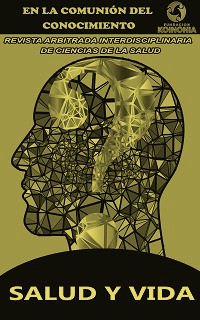Incidence of burnout syndrome in critical care nurses
DOI:
https://doi.org/10.35381/s.v.v7i2.2958Keywords:
resilience; psychological, personal autonomy, mental health, (Source: DeCS)Abstract
Objective: to analyze the incidence of Burnout syndrome in nursing professionals in critical units. Method: Descriptive documentary study. Results and Conclusion: The working conditions of a critical unit and, in particular, the workload, are characteristics of the working life of nursing professionals. It was shown that nursing professionals present Burnout syndrome and high levels of emotional exhaustion, moderate depersonalization and low levels of personal satisfaction. In addition to these findings, a statistically significant relationship was found between Burnout and the area of work, in this case the critical care unit.
Downloads
References
Alharbi J, Jackson D, Usher K. The potential for COVID-19 to contribute to compassion fatigue in critical care nurses. J Clin Nurs. 2020; 29(15-16):2762-2764. doi:10.1111/jocn.15314
Browning SG. Burnout in Critical Care Nurses. Crit Care Nurs Clin North Am. 2019; 31(4):527-536. doi: 10.1016/j.cnc.2019.07.008
Roy I. Le syndrome d’épuisement professionnel : définition, typologie et prise en charge [Burnout syndrome: definition, typology and management]. Soins Psychiatr. 2018; 39(318):12-19. doi: 10.1016/j.spsy.2018.06.005
Jiménez Murillo P. Síndrome de Burnout en personal de salud de Unidades de Medicina Crítica [Burnout syndrome in health personnel of Critical Medicine Units]. CAMbios-HECAM [Internet]. 2018; 17(2):34-9.
Fuentelsaz-Gallego C, Moreno-Casbas T, Gómez-García T, González-María E; Consorcio RN4CAST-España. Entorno laboral, satisfacción y burnout de las enfermeras de unidades de cuidados críticos y unidades de hospitalización. Proyecto RN4CAST-España [Work setting, satisfaction and burnout of the nurses in critical care units and hospitalization units. RN4CAST-Spain project]. Enferm Intensiva. 2013; 24(3):104-112. doi: 10.1016/j.enfi.2013.06.001
Alharbi J, Wilson R, Woods C, Usher K. The factors influencing burnout and job satisfaction among critical care nurses: a study of Saudi critical care nurses. J Nurs Manag. 2016; 24(6):708-717. doi: 10.1111/jonm.12386
Alzailai N, Barriball L, Xyrichis A. Burnout and job satisfaction among critical care nurses in Saudi Arabia and their contributing factors: A scoping review. Nurs Open. 2021; 8(5):2331-2344. doi: 10.1002/nop2.843
Gesner E, Dykes PC, Zhang L, Gazarian P. Documentation Burden in Nursing and Its Role in Clinician Burnout Syndrome. Appl Clin Inform. 2022; 13(5):983-990. doi: 10.1055/s-0042-1757157
Torre, M., Santos Popper, M. C., & Bergesio, A. Prevalencia de burnout entre las enfermeras de cuidados intensivos en Argentina [Prevalence of burnout among intensive care nurses in Argentina]. Enfermería Intensiva. 2018; 30(3), 108-115. https://doi.org/10.1016/j.enfi.2018.04.005
Möller G, de Oliveira JLC, Dal Pai D, Azzolin K, de Magalhães AMM. Nursing practice environment in intensive care unit and professional burnout. Rev Esc Enferm USP. 2021;55:e20200409. doi: 10.1590/1980-220X-REEUSP-2020-00409
Padilha KG, Barbosa RL, Andolhe R, Oliveira EM de, Ducci AJ, Bregalda RS, et al. Nursing workload, stress/burnout, satisfaction and incidents in a trauma intensive care units. enferm [Internet]. 2017;26(3):e1720016. Available from: https://doi.org/10.1590/0104-07072017001720016
Quijada-Martínez PJ, Cedeño-Idrogo IR, Terán-Ángel G. Quality of Professional Life and Burnout of the Nursing Staff at an Intensive Care Unit in Venezuela. Invest Educ Enferm. 2021;39(2):e08. doi: 10.17533/udea.iee.v39n2e08
Vasconcelos, E. M., Martino, M. M., & França, S. P. Burnout y sintomatología depresiva en enfermeros de terapia intensiva: análisis de relación [Burnout and depressive symptomatology in intensive care nurses: relationship analysis]. Revista Brasileira de Enfermagem REBEn. 2018; 71(1), 135-141.
Czeglédi E, Tandari-Kovács M. A kiégés előfordulása és megelőzési lehetőségei ápolók körében [Characteristics and prevention of burnout syndrome among nurses]. Orv Hetil. 2019;160(1):12-19. doi: 10.1556/650.2019.30856
Graystone R. Prevent Compassion Fatigue and Burnout With a Magnet Culture. J Nurs Adm. 2019;49(5):231-233. doi: 10.1097/NNA.0000000000000743
Published
How to Cite
Issue
Section
License
Copyright (c) 2023 Fanny Mercedes Sigcha-Sigcha, Neris Marina Ortega-Guevara, Isabel Echevarria-Frutos, María Cristina Cervantes-Vélez

This work is licensed under a Creative Commons Attribution-NonCommercial-ShareAlike 4.0 International License.
CC BY-NC-SA : Esta licencia permite a los reutilizadores distribuir, remezclar, adaptar y construir sobre el material en cualquier medio o formato solo con fines no comerciales, y solo siempre y cuando se dé la atribución al creador. Si remezcla, adapta o construye sobre el material, debe licenciar el material modificado bajo términos idénticos.
OAI-PMH: https://fundacionkoinonia.com.ve/ojs/index.php/saludyvida/oai.









